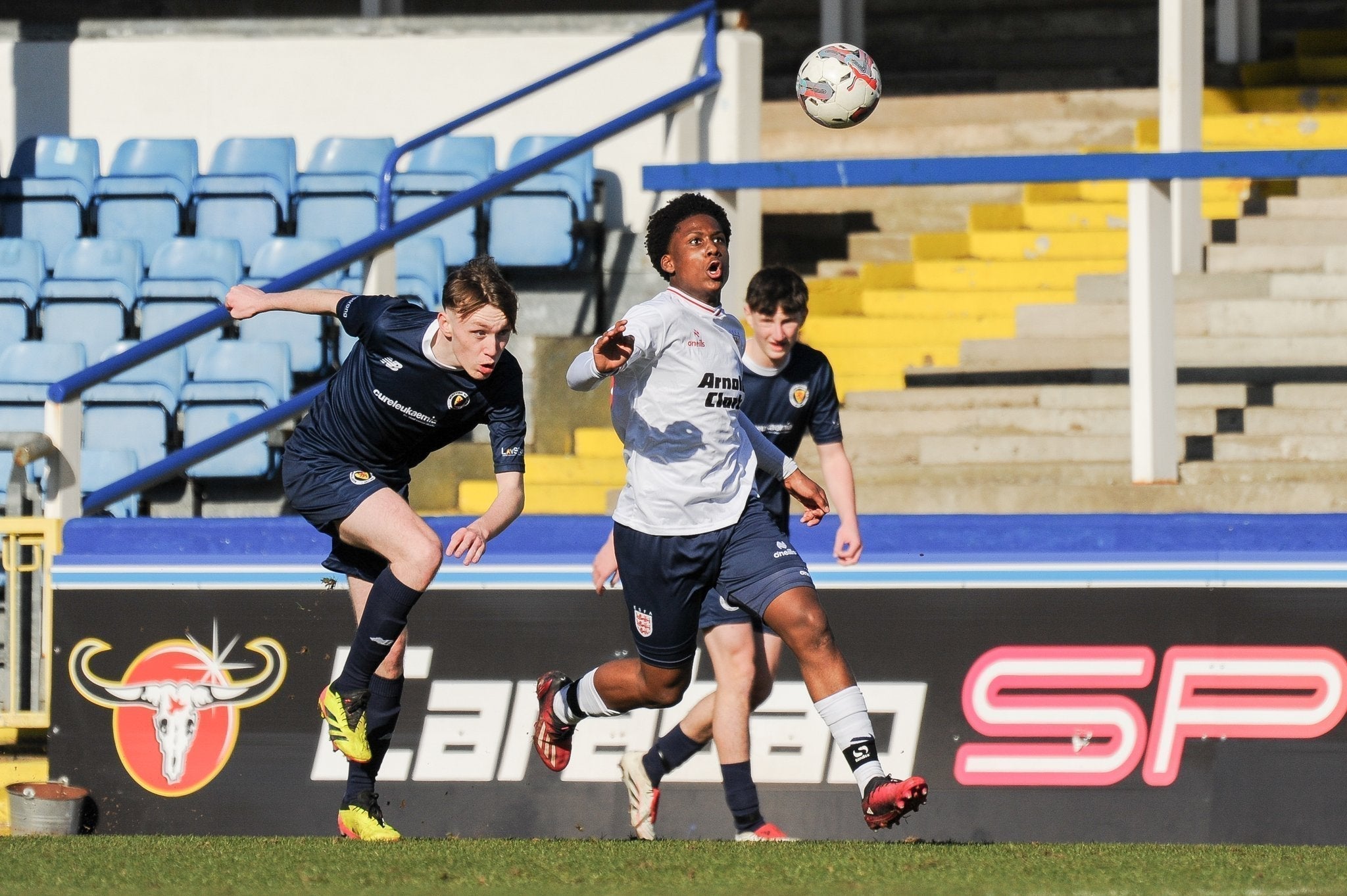Football academies traditionally scouted young talent from local clubs and inner-city pitches.
Yet a recent Telegraph report reveals a surprising shift: private schools are emerging as powerful incubators for future Premier League stars. Once seen as outsiders in the talent pipeline, elite independent schools are now nurturing top players like Jude Bellingham and Phil Foden alongside rising starlets Ethan Nwaneri and Myles Lewis-Skelly. These names – all of whom spent formative years in private education – highlight a broader evolution in football development.
What’s behind this trend?
It turns out that many UK private and boarding schools have invested heavily in football, blending high-level coaching, competitive match play, and academic excellence. In the past, privately educated footballers were rare curiosities, but today independent schools field thousands of teams and boast professional-grade facilities. More importantly, they provide structured environments where promising youngsters can pursue sporting ambitions and secure an education – a dual path that was once hard to imagine in English football.
This blog dives into how private schools became a new talent factory for the Premier League, drawing insights from recent cases and the mission we champion at Prestige Football Schools. We’ll explore how elite schools partner with pro clubs, how they balance books with boots, and why an increasing number of families see the blend of academics and elite sport as the ideal route to develop well-rounded athletes. The goal is not just to chase professional contracts, but to ensure each young player has the education, character, and support for success on or off the pitch.
Private Schools: A New Talent Pipeline
Top clubs are increasingly tapping into private schools to secure and develop young talent. In September 2023, for example, Arsenal managed to recruit 15-year-old Kyran Thompson by offering him a fully funded place at St John’s Prep and Senior School in Enfield – covering the £17,500 annual fees. This academic scholarship proved to be Arsenal’s trump card against competing offers from Manchester City, Chelsea, and Tottenham, highlighting how education can influence transfer tug-of-wars. At St John’s, Arsenal protégé Ethan Nwaneri had earlier won a sports scholarship (edging out his friend Lewis-Skelly), while Myles Lewis-Skelly secured one at Aldenham School; less than two years after leaving school at 16, both are now thriving in the Premier League. These cases underscore how independent schools have become part of the talent pipeline for top clubs.
Partnerships between academies and private institutions are now common. Since 2011, Manchester City have sent dozens of academy players to St Bede’s College, covering their tuition. Manchester United pays full fees for academy boys to attend Manchester Grammar School (a top independent day school), provided they pass the entrance exam. In total, 22 schools in England (12 of them private) are integrated into official “Full-Time Training” partnerships with pro clubs. Even Tottenham Hotspur has a tie-up with Culford School in Suffolk, embedding a staff coach on campus, while Norwich City funnels talent through Langley School’s dedicated academy programme. Clearly, private schools are no longer on the fringes – they’re actively being leveraged as nurturing grounds for the next generation of pros.
Elite Training Meets Top Education
Another reason private schools are producing elite players is the professional calibre of their football programs. Many top independent schools now boast facilities and coaching on par with professional academies. Take Millfield School in Somerset – often hailed as the best sports school in Britain – which now employs 16 UEFA-qualified coaches (six full-time) and maintains 11 full-size pitches on campus. Students there benefit from a setup comparable to a professional club, including multiple gyms and even a recovery pool for post-match rehabilitation. From barely ten football teams a decade ago, Millfield now fields 18 squads across boys and girls, touring internationally for pre-season – a sign of how fully football has been embraced.
Competitive play is also taken seriously. In fact, independent schools have formed their own high-performance leagues, such as the Hudl Independent Schools League launched in 2017. Matches in this league use three neutral officials and are filmed and analyzed with the same Wyscout software used by Premier League clubs. Fittingly, the league’s motto is “Pursuing Football and Academic Excellence,” reflecting dual priorities. And it’s not just a handful of schools playing – the independent schools football scene has exploded. In 2004 only 50 private-school teams were in existence; by 2023, there were over 21,000 teams (15,000 boys’ and 6,000 girls’ sides) competing nationwide. Football has gone from a disfavored pastime at elite schools to a flagship sport, enjoying the same resources once reserved for rugby and cricket.
Exposure, Scouting & Second Chances
Crucially, the private-school route is opening up new opportunities and second chances for young players. Elite schools now scout promising kids who have been released from pro academies at 15 or 16 – offering them a lifeline to continue their development. Coaches from leading independent programs pack into annual academy “exit trials” (showcase matches for released players) and often extend scholarship offers to those who impress. “We’ve seen a rise in pupils attending private school through either a bursary or a scholarship,” notes Ian Bent of the Independent Schools Football Association, whereas previously many of those sports scholarships would have gone to rugby.
This pathway can be career-saving. England defender Tyrone Mings is a prime example: after Southampton released him at 16, he enrolled at Millfield on a sports scholarship. For two years, Mings played almost exclusively for the school team, then leveraged that platform to jump back into professional football – ultimately carving out a successful Premier League career with Aston Villa and earning England caps. Likewise, winger Solly March spent his later teens on a scholarship at Bede’s School before signing with Brighton. With private schools now producing genuinely top-level prospects, professional scouts are taking notice. Attend a major independent schools tournament today and you’ll likely find the sidelines crowded with club recruiters. As one coach put it, “if they’re good enough… at an independent schools national game… you will see the whole pitch surrounded by scouts.” In short, talent in the independent sector is no longer flying under the radar.
Balancing Football and Education
One of the biggest advantages of the private school route is the equal emphasis on academics. With only about 3% of academy players ever making a single Premier League appearance, a safety net is essential. Top footballing schools ensure that alongside daily training, students keep up with studies and work toward qualifications. This approach isn’t just about having a “backup plan” – it can actively make them better footballers. Educated players often handle pressure and tactical learning more effectively, and staying engaged in class can prevent burnout from all-football, all-the-time. Luke Webb, a former Arsenal prospect who now directs football at Repton School, believes the brutal odds of “making it” demand focusing on school as well as sport. He also notes that in the private school setting, young athletes feel “psychologically safe” – they face competition, but not the cut-throat, dog-eat-dog environment of some pro academies. In other words, they can enjoy the game while growing, rather than constantly fear failure at every turn.
Parents are increasingly on board with this balanced path. Some families now negotiate academy contracts that guarantee private schooling for their child – essentially an educational insurance policy in case football doesn’t pan out. Alexander Tardios, headmaster of St John’s in Enfield, tells his academy players: “If you do not make it as a footballer… remember your footballing talent earned you a scholarship, which has led you to good grades… now you have the qualifications to go to university… This is where the game is changing.” That outlook captures the new ethos: developing great players, but also well-rounded young adults ready for life beyond the pitch.
To summarize, pursuing football at an independent school or football boarding school offers distinct benefits:
- Professional Coaching & Facilities: Access to top coaches, quality pitches, fitness suites and sports science support – akin to a pro academy environment.
- Competitive Match Experience: Regular high-level matches (often in dedicated leagues) that sharpen skills and game temperament, with officiating and analysis mirroring the pro game.
- Academic Progress: Students continue to earn qualifications (GCSEs, A-Levels, etc.) and cultivate intellectual growth, keeping university and career options open.
- Exposure to Scouts: School competitions and showcase events attract talent scouts, increasing the chance to be noticed or re-discovered by professional clubs.
- Personal Development: A structured, supportive setting instills discipline, teamwork, and resilience. Young athletes build confidence and life skills that benefit them on and off the field.
Guiding the Next Generation – Prestige Football Schools’ Mission
As this fusion of elite sport and education gains momentum, navigating it can be daunting for families. This is where Prestige Football Schools comes in. Our mission is to guide talented young footballers toward the top UK football boarding schools and programs that best fit their needs, abilities, and academic goals. We leverage first-hand knowledge and partnerships with leading institutions to match each student with an environment where they can flourish both as players and as students.
From identifying scholarship opportunities to advising on admissions and training schedules, we provide end-to-end mentorship and support. Our team understands that chasing a dream should not mean compromising academics or well-being. At Prestige, football ambition goes hand-in-hand with personal development – just as the new paradigm in youth football suggests. We’ve seen how the blend of high-level coaching and quality education can set a young athlete on a path to success, whether that’s reaching a professional club or pursuing a university degree as a well-rounded individual.
Through success stories and expert guidance, we champion the idea that a robust education can empower athletic talent. The rise of private schools in football development isn’t just a trend – it’s a testament to the power of a holistic approach. By embracing academics alongside athletics, tomorrow’s football stars are building a foundation for long-term success in the game and in life.



